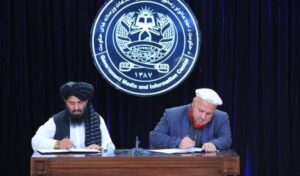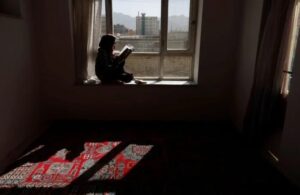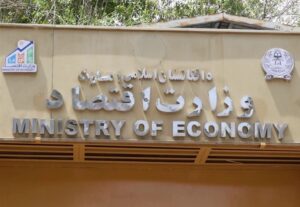KABUL (SW) – Salam Watandar’s findings via interviews with 24 women with physical disabilities in Kabul show that although these women are eligible to receive benefits from the de-facto government, but 17 of them have not received any help and the other seven receive help in such a way that it is not enough for their livelihood.
Among these women, 18 of them have disabilities with hands and feet while another six have blindness disabilities. Among them, nine people have been disabled as a result of the explosion of mines left over from the wars, three people have been disabled due to not getting the polio vaccine, two people have been disabled by birth, and the other three people have been disabled due to falls, illness and traffic accidents.
Rabia Ahmadi and Bahar Sediqi, two women with disabilities, one of whom is blind and the other has a leg disability, said that they do not receive any help from the de-facto government and are in a bad economic situation. “Since I was young, I was blind and I thought I was very weak. We do not receive any help from the government and we have a lot of economic problems and we cannot meet our needs,” Rabia said.
Bahar Sediqi adds: “I am a housewife myself. I am disabled at the leg; I cannot do anything and I am facing many problems. Besides this, I am very poor. I have not received any help and I do not have any card from the Ministry for Martyrs and Disabled.”
These women do not receive help from the Ministry for Martyrs and Disabled Affairs, however, according to this ministry, all women with physical disabilities are eligible to receive benefits regardless of the cause of the disability.
Roya and Zohra, two of the women who have referred several times to the Directorate of Martyrs and Disabled Affairs in Kabul to receive a living; But they have not received any answer or help.
Roya says: “I am a housewife and I am blind in both eyes. I visited my sanatorium three times; But they did not give us any answer, and then we went to Shah-e Du-shmashira (mosque) and filled out a form there. However, it still did not work and finally we went to the Martyrs and Disabled Directorate and they promised us that they will help and that our problem will be taken care of. But until now, there is no news about them, and from the economic point of view, even 10 Afghanis are not in our house.”
Zohra also says: “I am disabled at leg and I went to the martyrs and the disabled directorate. I have not even received a card so far and I went several times; but they did not pay any attention to us.”
On the other hand, the findings of Salam Watandar’s report show that out of the 24 interviewed women, seven of them receive an allowance from the Ministry for Martyrs and Disabled Affairs in such a way that it is not enough for their livelihood.
Shakila, one of the women who was disabled as a result of the explosion of landmines left over from the civil wars, says: “I have two children and we led our lives with many difficulties; My leg is amputated from the knee to the end. Our salary is paid; But not on time and as promised, our problems are many.”
“I became disabled and lost my legs. I have married and have two children and my husband is disabled. He was also disabled in the war and is currently unemployed, he is at home,” said Shukria, another one of the women who was disabled as a result of the explosion of landmines left over from the civil wars in the country. “There are many economic problems, we are supported by the government and they gave us 6,000 Afghanis some time ago,” she added.
However, Salam Watandar’s findings from a conversation with the Ministry for Martyrs and Disabled Affairs show that women registered in this ministry receive a salary twice a year according to their needs; what women with disabilities consider insignificant.
However, in addition to economic problems, the behavioral distinction of people in society with women with disabilities is one of the other challenges that these women face.
Abeda Faizi, 35, one of these women, told Salam Watandar: “During the Mujahideen era, mines were left; I was nine years old when my leg was amputated. In Afghanistan, disability is a flaw, especially women are considered a defect and they talk among themselves; however, I do not care. I am struggling in silence but do not show it on my face, and we all always suffer from this aspect; Not only me, but all those who are disabled.”
Maryam, 17, says that disability can also be an obstacle to starting a marital life; for this reason, she decided not to marry.
She said: “At the age of five, my leg was amputated due to a car accident, and I feel very bad; because I cannot walk and to live like others or to wear what I like. I suffered; but I do not care because I have to decide about what I want. I do not have a good economic situation and I never want to get married; because if I get married, the husband has a family of his own, and I do not want anyone to talk about me.”
Nevertheless, according to psychologists, disability cannot limit people and those with disabilities can show their extraordinary talents in every field.
Nezami Aziz, a psychologist, says: “Persons with physical disabilities cannot participate in society like normal people; because people who suffer from physical and mental disabilities have a kind of anxiety, and people’s view should be humane to these people so that those with disabilities are not thrown away from society and can make a place for themselves.”
In addition, Zulaikha Yaqubi, a civil activist, asks the people to treat individuals with disabilities in a proper way, giving them priority, especially women with disabilities, in employment matters in various departments.
“Any help that we have, should be given to disabled women as well, everything that that a healthy person has, disabled persons also have. We should not ignore this matter. They really have a lot of talents and abilities,” she added.
Despite all this, Faisal Khamosh, the spokesperson of the Ministry for Martyrs and Disabled Affairs of the Islamic Emirate, says that 30,377 women with disabilities are registered in this ministry, and the process of registering these women is ongoing. He adds that the disabled women are given financial assistance after every six months.
He further mentioned: “For them, monthly cash assistance is paid every year during two periods (once every six months) through the banking system. For the registration and biometrics of disabled women and widows, we have created a separate department, which advances the process, and its employees are also women.
It is worth noting that as a result of the civil wars in the past years, many women and men have become disabled and they have not been given significant help.






